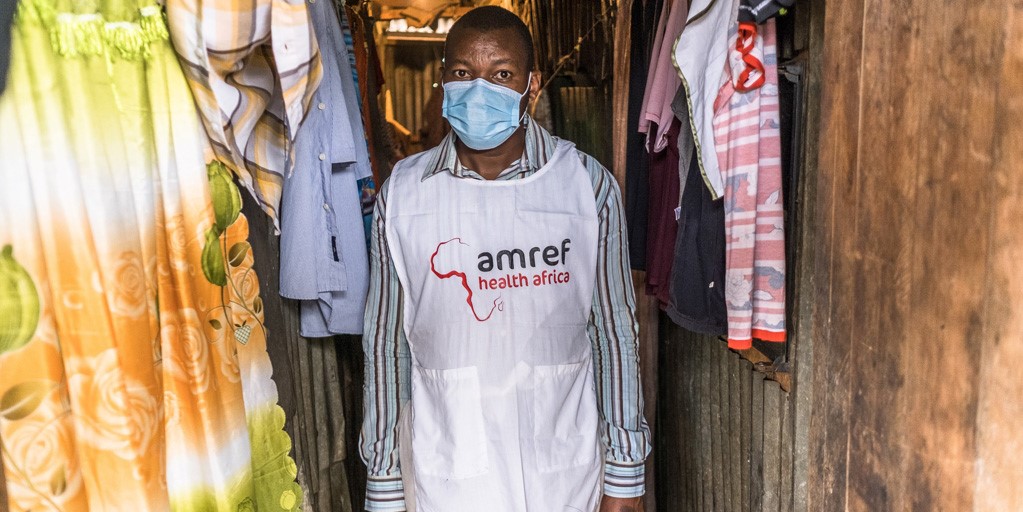Head to head study of charity led vs participant led fundraising campaigns
By: News Archive

Fundraising appeals led by the people they intend to help can raise more money and be more effective than those created by the charity itself - according to new research by the University of East Anglia and University of the Arts London (UAL).
In partnership with Amref Health Africa, the ‘Who Owns the Story?’ study involved two appeal packs going head-to-head with supporters, the first time live financial responses to fundraising campaigns have been tested by a charity.
Charities and international non-governmental organisations (INGOs) are often criticised for the use of their imagery and messaging in fundraising appeals. While there have been many recent positive examples of shifts towards what is often known as responsible or ethical storytelling from Euro-US based charities telling stories about those outside this region, the power to decide what story is told and how still firmly resides within the fundraising countries.
In this study, the researchers aimed to explore how UK audiences respond financially and emotionally to stories of poverty developed and told directly by the image ‘subject’ in their own words, as opposed to fundraising materials designed by the charity.
Two appeal packs were sent out to about 1800 people on Amref UK’s supporter database. The first pack was created by Patrick Malachi, a community health worker in Nairobi, Kenya, who controlled all editorial decisions, took, and selected the images, and told the story in his own words, while the second was created by Amref with the help of a professional photographer and told in the voice of the INGO.
Key findings from the study, published in a report today, include:
• The pack designed by the community health worker raised more money than the one created by UK-based fundraisers – and 38% more compared to previous appeals.
• Stories produced by people from their own communities feel more authentic and can create a stronger emotional bond with donors.
• Donors responded to a story told directly by the story ‘subject’ by recognising the positive challenge to some of the stereotypes INGOs are accused of perpetuating: “It’s good to see the old paternalistic model of charitable donation give way to a realisation that Africans are capable of making their own decisions about how to help their community.”
David Girling, from UEA’s School of International Development, said: “This research proves without doubt that it is possible to enable participant-led choices regarding storytelling, and still raise as much money as if you had created the fundraising materials yourself. It challenges the dominant sector opinion that in order to raise funds, stories must be selected and created by professional fundraisers. We hope that the project will inspire other organisations to work in partnership with the people whose stories they share.”
“Our results show there is another way of gathering and sharing the stories of people living in poverty around the world,” said Jess Crombie, of UAL’s London College of Communication.
“It is really about trusting that if we hand the power of editorial decision-making and narrative choice to the people living these stories, we won’t just be doing something ethically sound, we will also tell more powerful, more interesting and ultimately more effective stories.”
The charity appeal created by the community health worker also resulted in the participants feeling good about what outsiders hear about their own community, with Patrick saying: “The best thing is that you are talking directly to the real people, they have the best knowledge, the true picture of what they are saying.”
This research was inspired by previous work carried out by Ms Crombie and Mr Girling investigating 'subject’ responses to their portrayals in humanitarian campaigns. It was carried out during and following a number of events that caused the aid sector to reconsider their approach to communications and fundraising.
This included the COVID-19 pandemic, the broader conversations around the need for anti-racist behaviours within the sector; and several scandals in how the humanitarian sector interacts with those that it serves. It also happened during a period of broader understanding of the need to recognise colonial histories and how attempts are made to decolonise.
Rachel Erskine, Communications Manager at Amref Health Africa UK, said: “Amref has made a public commitment to ethical storytelling and representation in fundraising and communications. In practice, this means - among other things - creating opportunities for the people we support to tell their own stories directly to the UK public.
“Partnering with UEA and UAL on ‘Who Owns the Story?’ was a way for us to take that commitment to the next level and really put our money where our morals are by testing the widely-held assumption that differently-told stories won’t move supporters to take action.”
The research was supported by funding from the UEA Quality Related Global Challenges Research Fund and UAL Research Fund.
Related Articles

Fresh evidence of ChatGPTs political bias revealed by comprehensive new study
The artificial intelligence platform ChatGPT shows a significant and systemic left-wing bias, according to a new study by the University of East Anglia (UEA).
Read more
A values crisis underpins the biodiversity and climate emergency
A new study published in Nature shows how undervaluation of nature is foundational to the environmental crisis we face.
Read more
Study reveals the increasing cost of debt caused by climate change
Climate change will increase the cost of sovereign and corporate debt worldwide according to new research led by the University of East Anglia (UEA) and the University of Cambridge.
Read more